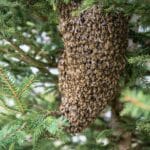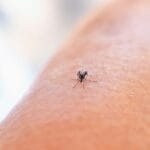Key Takeaways: Safeguarding Your Home’s Value
- Termites and rodents can significantly reduce a home’s selling price.
- Structural damage and visible signs of infestation deter prospective buyers.
- Regular inspections and proactive pest control are vital for preserving home value.
- The cost of fixing pest damage can be substantial, affecting both home equity and resale potential.
- Honesty and professional remediation are crucial to restoring value after an infestation.
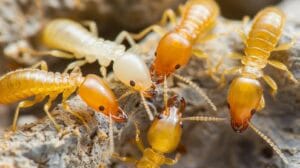
Imagine you’ve invested in what you believed was a sturdy home, only to discover that termites have turned your wooden beams into a meal. Or perhaps you’ve awakened to the sound of tiny rodent feet in your attic. These aren’t just minor inconveniences; they’re silent devaluators eating away at your home’s value. Let’s explore how these unwelcome visitors can affect your property’s value and what you can do to prevent them.
The Hidden Threat: How Pests Affect Home Value
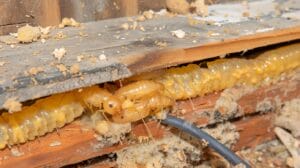
Pests can be a major factor in reducing your home’s value. It’s not just the immediate annoyance they cause; it’s the long-term damage and the red flags they raise for potential buyers. Termites, for example, can quietly eat away at the structural integrity of your home, leading to expensive repairs. Rodents, meanwhile, are known for chewing on wires, which can lead to electrical fires and signal to buyers that your home might be a risky purchase.
Typical Pests: From Termites to Rodents and More
Don’t just keep an eye out for termites and rodents. There are a range of pests that can decrease the value of your home:
- Termites: These pests can destroy wood, wallpaper, and flooring, resulting in structural damage.
- Rodents: Mice and rats can gnaw through wires, insulation, and even pipes.
- Cockroaches: Their existence can suggest a lack of cleanliness, discouraging potential buyers.
- Bedbugs: They are hard to eliminate and can make a property less appealing to buyers.
- Ants: Some types, like carpenter ants, can damage wood in a similar way to termites.
It’s important to detect and deal with these issues early on to stop a minor issue from turning into a major infestation that could lower your home’s value.
Unseen Damage and the Silent Signs of Danger
There are some infestation signs that are easy to spot, such as termite wings or rodent droppings. However, others are not so clear. For example, you might notice a hollow sound when you knock on wood, which could mean termite damage. Or maybe you find grease marks along your walls, which are a clear sign of rats using the same path over and over. These silent signs are easy to miss but can be just as harmful to your home’s value as the more visible signs.
Here’s what you should keep an eye out for:
- Termite damage: Watch for wood that’s been hollowed out, mud tubes on the outside of your home, and termite swarms.
- Rodent signs: Look for droppings, signs of chewing, and nesting materials.
- Ant trails: These may be a sign of a nest inside your home.
- Cockroach sightings: If you see one, there may be many more hiding.
- Bedbug evidence: Look for tiny spots of blood on your bedding or furniture.
Spotting these signs early can save you a lot of trouble and money in the future.
Now, let’s discuss how you can safeguard the value of your home from these annoying intruders.
Defensive Pest Control: Methods That Conserve Resources and Reduce Anxiety
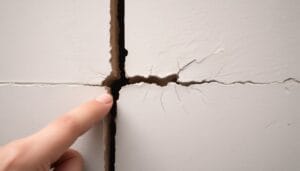
Defensive pest control is similar to erecting a barrier around your fortress. It’s the intelligent method to preserve your house’s worth. Here’s how you can fight back against pests with eco-friendly pest control methods:
- Seal up: Make sure to close any gaps or cracks in the exterior of your home to prevent pests from entering.
- Keep it clean: Maintaining a clean home is less inviting to pests that are searching for food and shelter.
- Reduce moisture: Fix any leaks and get rid of standing water to keep away pests that are attracted to moisture.
- Inspect regularly: Regular inspections can catch pests early, preventing significant damage and saving money on repair costs.
- Professional help: Sometimes, the best offense is a good defense, and that means hiring experts for regular treatments.
By staying proactive, you can stop pests from becoming a problem in the first place, saving you from the stress and the high costs that come with major infestations.
Working Out the Numbers: The Economic Blow of Pests to Home Equity
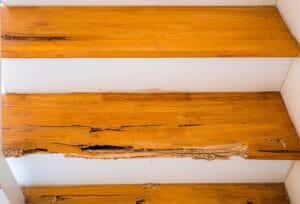
The economic blow of a pest infestation can be shocking. Termites alone are responsible for billions of dollars in damage every year. Think about it: fixing termite damage can cost anywhere from a couple hundred to several thousand dollars, based on how severe the infestation is. And that’s not even taking into account the drop in property value. A house with a past of pests can be a difficult sell, often resulting in price drops to attract cautious buyers.
The Real Cost of Repairing Pest Damage
So, how much does it really cost to repair pest damage? Let’s break it down:
- Small-scale damage: Minor infestations may only necessitate localized treatments and small repairs, which could cost a few hundred dollars.
- Large-scale damage: Larger infestations may require structural repairs, which could easily cost several thousand dollars.
- Prevention and treatment: Regular pest control services may cost a few hundred dollars per year, but they are worth every penny to prevent expensive damage.
Investing in prevention is not just about protecting your home; it’s about protecting your financial future.
How Pests Can Scare Off Potential Buyers
Pests don’t just cause physical damage; they also leave a psychological mark. When potential buyers hear the word ‘infestation’, they think ‘danger’. And that perception can quickly decrease your home’s value. Even if you’ve already taken care of the problem, just the idea of pests can make buyers hesitate and sellers reduce prices. So, it’s crucial to deal with any infestations promptly and thoroughly to keep your home attractive to the market.
How to Restore Your Home’s Value After an Infestation

So, what happens if the damage has already been done? Don’t panic; it’s not the end of the world. There are steps you can take to restore your home’s value after an infestation:
- Professional Fixes: Employ trustworthy contractors to correctly mend any structural impairments.
- Keep a Record: Maintain an extensive log of the infestation, its treatment, and the repairs to present to potential buyers.
- Assurances and Warranties: Provide transferable termite bonds or warranties on the repairs to give buyers peace of mind.
By following these tactics, you can prove that you’ve not only rectified the problem, but also implemented measures to avoid future issues, thereby reinstating trust in the value of your home.
Professional Solutions: Saving Your Investment
When dealing with pests, sometimes you need to bring in the big guns. Pest control experts can provide the knowledge and treatment options needed to get rid of infestations and stop them from coming back. They can also give you invaluable tips on how to keep your home free from pests. Keep in mind, the cost of hiring professionals is nothing compared to the potential drop in home value from not dealing with pest problems.
Should You Disclose or Eliminate Pest Problems Before Selling Your Home?
When it comes to selling your home, it’s best to be upfront. In many areas, it’s not just the law to disclose any past or current pest issues; it’s also the right thing to do. However, it’s even better to get rid of the pest problem before you list your home for sale. A pest-free report can do wonders for calming potential buyers and keeping your price where you want it.
FAQ: Fighting the Critters and Boosting Your Home’s Worth
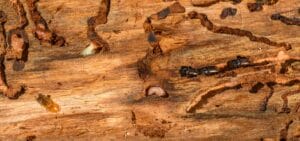
Here are some frequent questions homeowners ask about pests and property value:
- Does a small pest problem affect the value of my home? Even a minor infestation can be a red flag for potential buyers and inspectors, which could result in lower offers.
- Can pest damage be fully repaired? Yes, with professional help, most pest damage can be fixed, and the home can be returned to its original value.
- How do I show that my home is free of pests during a sale? Provide paperwork from pest control services and any repairs that have been done. A recent inspection report can also be beneficial.
- Is it worth it to pay for pest prevention? Definitely. The cost of preventative measures is much less than the cost of repairs and lost home value.
- When should I hire a professional for pest control? As soon as you notice a problem. Acting quickly is the best way to prevent damage and maintain the value of your home.
By being alert and proactive, you can keep your home free of pests and maintain its value. Whether you’re planning to sell or just want to protect your investment, following these steps will help keep your home in good condition for many years.
Professional Pest Control: Saving Your Investment
When pests are involved, it might be time to call in the big guns. Pest control professionals have the knowledge and treatment plans required to eliminate infestations and stop them from coming back. They can also give you priceless advice on how to keep your home free of pests. Keep in mind, the cost of hiring professionals is nothing compared to the potential decrease in home value from ignored pest problems.
Should You Disclose or Eradicate Pest Evidence Before Selling Your Home?
When you’re selling your home, honesty is always the best policy. In many places, it’s not just legally required to fully disclose any past or current pest issues, but it’s also the right thing to do. However, it’s even better to get rid of any pest problems before you list your home for sale. A clear pest report can reassure potential buyers and help you keep your asking price intact.
FAQ: Fighting Pests and Protecting Your Home’s Worth

Here are some frequently asked questions by homeowners about pests and their effects on property value:
- Will minor infestations significantly affect my home’s value? Even minor infestations can raise concerns for buyers and inspectors, potentially leading to lower offers.
- Is it possible to completely restore pest damage? Yes, with professional help, most pest damage can be repaired, and the home can be restored to its full value.
- How do I prove my home is pest-free during a sale? Provide documentation from pest control services and any repairs made. A recent inspection report can also help.
- Is it worth investing in pest prevention costs? Absolutely. Preventative measures cost far less than the expense of repairs and lost home value.
- When should I call a professional for pest management? At the first sign of trouble. Early intervention is key to preventing damage and preserving value.
By staying alert and proactive, you can protect your home from pests and preserve its value. Whether you’re looking to sell or simply maintain your investment, the steps outlined here will keep your home safe and sound for years to come.
Your request doesn’t include any AI content to rewrite. Please provide the content you’d like me to work on.

